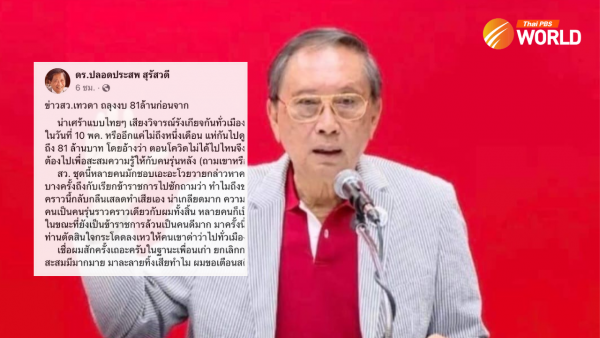Court ruling opens Pandora’s box for charter-change process

The Constitutional Court ruling on charter amendment has triggered a new round of debate on whether the ongoing parliamentary process to change the supreme law can continue or if it is back to square one.
On Thursday, the court ruled that Parliament is authorised to write a new Constitution, but first a national referendum must be held to find out if the public actually wants a new charter. And once the new charter draft is completed, it must be put to another public referendum.
The court’s ruling comes in response to a petition filed last month by senators and MPs of the core coalition Palang Pracharath Party.
The push for charter change follows mounting pressure on the government from youth-led protesters calling for Prime Minister Prayut Chan-o-cha’s resignation, a more democratic Constitution and reform of the monarchy. Protesters and critics say provisions in the 2017 charter, which was written under the previous junta regime, are undemocratic and designed to help Prayut retain power following his 2014 coup as Army chief.
Political experts say that though the court has given Parliament authority to write a new charter, it is still unclear how many national referenda will be required.
The focus of concern is that Parliament first needs the public’s nod on whether it wants a new charter before the amendment process can start.
Public referendum on the cards
Those pushing for change say that after the bill to amend the charter goes to a final vote in Parliament on March 17, it will be put to a national referendum as required by the current Constitution.
The charter’s Article 256 (8) stipulates that a charter amendment draft bill that is related to its revision must pass a public referendum before it can be submitted for royal endorsement.
“Can we interpret Parliament’s actions – setting up a CDA [Constitution Drafting Assembly] to rewrite a new charter and seeking public opinion after the draft bill passes – as a referendum [as required in the court ruling]?” asked Stithorn Thananithichot, a political scientist from King Prajadhipok’s Institute.
If lawmakers believe so, then only two referenda will be necessary – one after Parliament votes on the third reading of the amendment bill and another once the charter draft is completed, he said.
Back to square one
However, those opposed to charter change insist the ruling puts the entire process back to square one. Their interpretation of the ruling is that a referendum must first be held to seek the public’s opinion on rewriting the current charter before the amendment process can begin.
If this is the case, then senators who are strongly opposed to charter change would vote down the draft bill in the third reading on March 17. Senators can shoot down the bill in the final reading because it requires a “yes” vote from more than half of Parliament, including a third (84 members) of the Senate.
After the bill is rejected, the government will be required to hold a public referendum on whether they want a new charter. If the result is yes, then lawmakers will need to start writing a new charter amendment draft and propose it to Parliament again.
Critics believe this lengthy process will only prolong the power of the senators, who were handpicked by the previous military-led government.
Room for interpretation
This scenario was hinted at by deputy Palang Pracharath leader Paiboon Nititawan, who led the court petition. He said that, initially, he found the ruling confusing, but after studying it in detail he declared it satisfactory. According to his interpretation, the ruling says Parliament cannot give authority to a CDA to write a new charter.
He added that this means the ongoing process of charter amendment would be nullified and Parliament cannot vote in the final reading.
“People will have to be asked first if they want the entire charter to be amended. It cannot add the amendment draft [which has passed the second reading] as an extra question in the same referendum,” he said. “I think it’s possible that the draft bill will be voted down.”
Parliament President Chuan Leekpai, meanwhile, said the ruling could be interpreted in different ways and that he wanted to wait until all the details are available. As for the Parliamentary vote on March 17, he said it will go ahead as scheduled.
By Thai PBS World’s Political Desk






